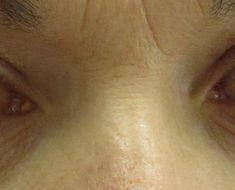Hurricane Florence hit the East Coast over the weekend, causing fierce winds, torrential rain, and flooding that sent hundreds of thousands of Americans fleeing from their homes. As of Monday, approximately 10,000 North Carolinians were staying in shelters, and the death toll from the storm had reached 33.
Now that the storm surge is over, the immediate dangers of drowning or being swept away have been greatly minimized. But hurricanes can also create dangerous conditions that last long after the wind and rain has stopped. In addition to the health risks associated with power outages and damaged plumbing, floodwater itself can harbor bacteria and disease-carrying organisms that pose a risk to evacuees, rescue workers, and anyone returning to their homes after a hurricane.
“Floodwater can have very high levels of bacteria, viruses, sewage, and parasites that can infect you if it gets in your mouth, your eyes, or into a cut in your skin,” says Amesh Adalja, MD, an emergency medicine doctor and senior scholar at the Johns Hopkins University Center for Health Security. “It’s much different than other types of water you’d encounter in everyday life.” Here are a few of the ways that flooding can make disaster victims and rescue workers sick, and how you can protect yourself if you’re in harm’s way.
Gastrointestinal illnesses
One of the biggest risks of swallowing floodwater is ingesting a bacterium, virus, or parasite that causes a gastrointestinal illness, says Dr. Adalja. “Most of these infections will probably be pretty benign and may only cause vomiting or diarrhea,” he says. But these symptoms can also become serious and can cause life-threatening dehydration.
Cryptosporidium, Giardia, E. coli, and salmonella are a few examples of germs that can contaminate floodwater and cause stomach distress. Leptospirosis, a potentially fatal illness that’s spread through rat urine, is another big risk in flooded communities, says Dr. Adalja. Experts also warn about cholera and typhoid fever, both of which can be caused by bacteria-contaminated water after natural disasters and flooding.
Skin infections
Swallowing bacteria isn’t the only risky thing about being exposed to floodwater. “People in these situations may have abrasions or cuts on their body, and those can get secondarily infected with bacteria from the water,” says Dr. Adalja. Last year, a Texas woman died weeks after falling into floodwaters during Hurricane Harvey and contracting necrotizing faciitis, also known as flesh-eating bacteria.
“If you have cuts or scrapes, try your best to cover them up and administer basic first aid,” says Dr. Adalja. “Use an antibiotic ointment if you have it, and keep an eye on it to make sure it doesn’t become red or swollen.” If it doesn’t appear to be healing like it should—or if you develop a fever, chills, or other signs of infection—see a doctor as soon as you can.
Mosquito-borne illnesses
“Another problem with flooding is that it can attract mosquitoes,” says Dr. Adalja. “They find breeding places in all the debris that serves as receptacles for standing water after a flood.” Most of the country is at risk for West Nile Virus, says Dr. Adalja, and several states can also harbor mosquitoes that carry Zika virus, dengue fever, and chikungunya.
Hepatitis
Hepatitis is often thought of as an illness that’s spread through sex or IV drug use, but certain types of the disease can also be transmitted through contaminated food or water. Hepatitis A and E, specifically, can be a danger in areas that have experienced flooding, although hepatitis E is rare in the United States.
Legionnaires’ disease
The bacteria Legionella is found naturally in water, and when people swallow or breathe in contaminated water droplets, they can contract Legionnaires’ disease—a respiratory infection that causes coughing, shortness of breath, fever, and chills. Like most bacterial infections, Legionnaires’ disease can usually be treated with antibiotics—although it can sometimes be fatal, especially if it’s not caught early.
Legionnaires’ disease is often spread when a supply of drinking water becomes contaminated, or through contaminated pools or hot tubs. But there have also been documented cases of people becoming sick with the disease after cleaning up floodwater.
To get our top stories delivered to your inbox, sign up for the Healthy Living newsletter
In the midst of a natural disaster, it can be hard to avoid exposure to flooding—and to find appropriate medical treatment immediately afterward. But Dr. Adalja says that people can reduce their risk of becoming sick by using common sense and trying to practice good hygiene whenever possible.
“Try to avoid exposure of your mouth, your nose, and your eyes to the water if you can,” he says. “And of course, avoiding floodwater altogether is the safest bet, which is why evacuation is usually the best thing to do.” If you do get sick after exposure to floodwater, mention your symptoms to a doctor as soon as you’re able.
Source: Read Full Article





